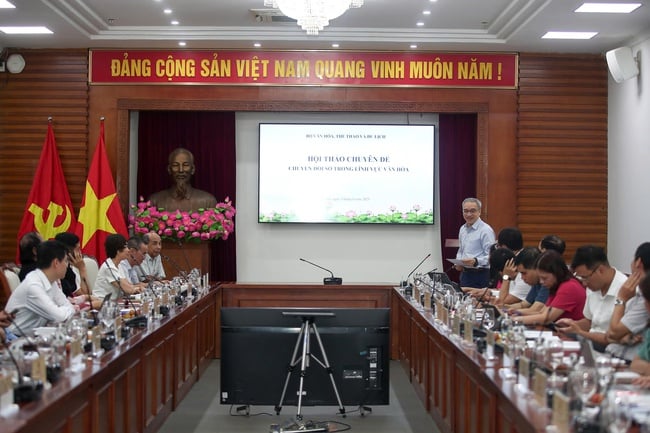
Deputy Minister Phan Tam - Deputy Head of the Steering Committee of the Ministry of Culture, Sports and Tourism on science , technology development, innovation, digital transformation, administrative reform and Project 06 chaired the Workshop.
At the Workshop, presenting a paper with the topic "Digital transformation of the cultural sector: Awareness, approach and ecosystem establishment", Prof. Dr. Tu Thi Loan, former Acting Director of the Vietnam National Institute of Culture and Arts, said that digital transformation of the cultural sector is not only about digitizing documents and artifacts (converting from physical to digital), but also about transforming thinking, operating methods, approaches and organizational-management models thanks to the application of digital technology , big data, artificial intelligence (AI), Internet of Things (IoT), Cloud Computing, Blockchain...
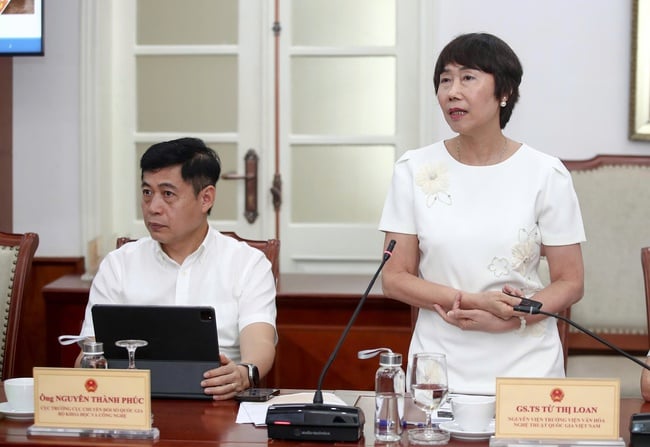
Prof. Dr. Tu Thi Loan, former Acting Director of Vietnam National Institute of Culture and Arts.
According to Professor Tu Thi Loan, digital transformation of the cultural sector has a very different nature and characteristics compared to economic and technical sectors. The goal of digital transformation of culture is not only aimed at economic efficiency or automation, but also focuses on preserving and promoting the values of identity, historical depth, culture, tradition, and creative forms of expression. Thus, digital transformation is not a goal in itself, but a means and tool to help improve the effectiveness of the entire process: preserving, spreading, innovating and developing culture.
This leads to the approach of digital transformation in culture not simply "digitalizing" or "putting it online", but rather transforming the mindset of preserving, receiving, organizing, and developing new forms of communication and expression in the digital space; ensuring that traditional identity and values are not lost/deformed when transferred to the digital environment.
At the workshop, Prof. Dr. Ho Tu Bao, member of the National Advisory Council on Science and Technology Development, Innovation and Digital Transformation, analyzed the concepts of "digital", "real-digital environment", levels of digital transformation and ST-235 methodology.
Prof. Dr. Ho Tu Bao also stated the basic principles for digital transformation including three pairs: Comprehensive and comprehensive; Synchronous and breakthrough; Ownership and leadership. At the same time, he raised issues on digitalizing heritage and cultural resources; Creating, producing, and disseminating culture and art; Innovating the public's way of enjoying, consuming, and experiencing culture; Innovating the public's way of enjoying, consuming, and experiencing culture and gave some suggestions for digital transformation in the cultural field.
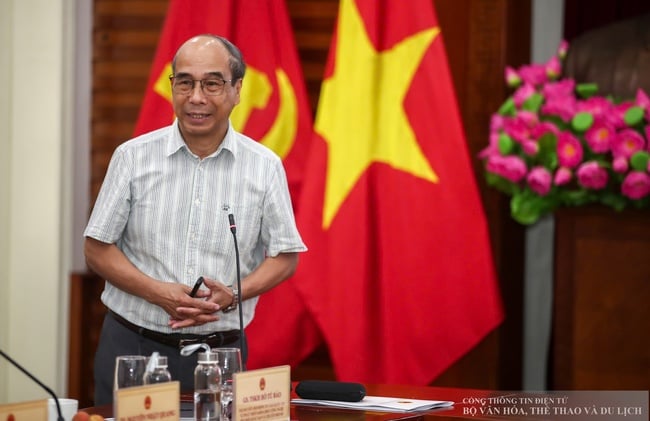
Prof. Dr. Ho Tu Bao, Member of the National Advisory Council on Science and Technology Development, Innovation and Digital Transformation
Sharing about digital twin technology and cultural digital transformation, Dr. Nguyen Nhat Quang, Member of the National Advisory Council on Science and Technology Development, Innovation and Digital Transformation, said that digital transformation is not about building a digital world to replace the real world, but rather the process of integrating the digital environment into the physical and social environment to make real life better. The digital environment has two main characteristics: digital data (including data processing capacity) and digital connectivity.
Digital twins are an effective way to organize digital environments. Digital data describes the real environment organized according to the structure of physical assets and social organization structures. Digital connections ensure the collection of real-world observation data, real-time updates to the model, ensuring the twin throughout the entire life cycle. Data is processed into useful information and distributed through digital connections.
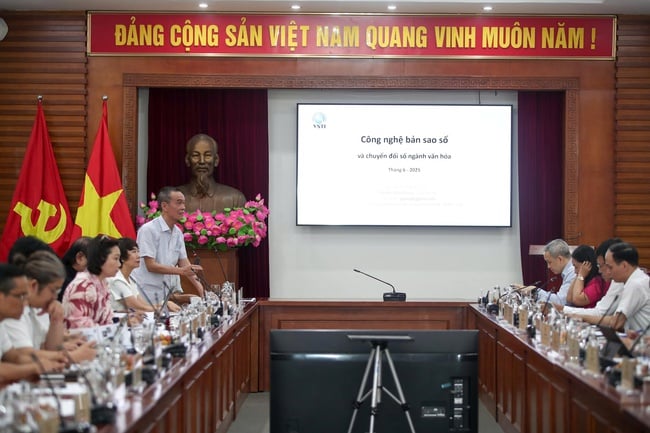
Dr. Nguyen Nhat Quang, Member of the National Advisory Council on Science and Technology Development, Innovation and Digital Transformation
According to Dr. Nguyen Nhat Quang, using digital copy technology (digital data and digital connection) to increase the value of cultural products. Digitizing tangible and intangible heritage. Connecting digital copies with other economic products and services to increase value. Using digital data and digital connection also contributes to creating and spreading cultural values, supporting the development of tourism, culture, and cuisine. Promoting the formation and development of cultural industries.
At the same time, build a smart cultural management system, digital government in the cultural field, promote people's participation in cultural management.
Sharing lessons learned on promoting heritage resources and promoting digital transformation from the practice of the Temple of Literature - Quoc Tu Giam, Ms. Nguyen Lien Huong, Deputy Director of the Center for Cultural and Scientific Activities of the Temple of Literature, said that during the outbreak of the Covid-19 pandemic, the entire relic had to be closed for a long time. This is considered a period of serious crisis but also an opportunity for the relic to recognize and approach new directions.
"We realize that applying information technology and digital transformation is a golden opportunity to carry out the task of managing, preserving and promoting the value of relics," said Ms. Nguyen Lien Huong.
Since the Covid-19 pandemic, the Temple of Literature - Quoc Tu Giam has promoted the application of technology and digital transformation with a number of outstanding activities such as: Digitizing documents, artifacts and tour systems (applying electronic tickets; using QR codes for documents, artifacts, architectural works, using technology to increase visitors' interaction with the relic); Building a 3D digital database (implementing a comprehensive digitalization project using 2D, 3D digital technology solutions, AR/VR 3D, VR360, Holosys, Hologram projection, 3D mapping... combined with cultural-historical research to create high-quality digital products serving research, education and promotion of the relic, especially suitable for the modern experience needs of young people).
In addition, applying technology to separate and digitize ancient patterns on artifacts and architectural items to design unique souvenir products bearing the unique mark of the Temple of Literature - Quoc Tu Giam, meeting the diverse needs of tourists, especially international visitors and young people.
In addition, the Center also promotes the application of artificial intelligence (AI), builds a standardized and synchronized database system, and applies automatic work management software...
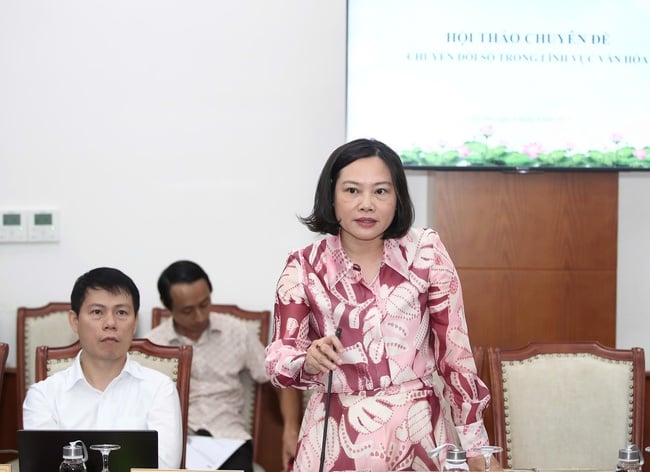
Ms. Nguyen Lien Huong, Deputy Director of the Center for Cultural and Scientific Activities of the Temple of Literature
The Deputy Director of the Center for Cultural and Scientific Activities of the Temple of Literature said that thanks to the application of technology and the promotion of digital transformation, the Temple of Literature - Quoc Tu Giam welcomes millions of visitors every year, creating a source of revenue for reinvestment, restoration of relics as well as contributing to the state budget.
However, according to Ms. Nguyen Lien Huong, because the Temple of Literature - Quoc Tu Giam relic site is one of the leading units in the heritage sector in digital transformation activities, it also faces many difficulties and challenges. Among them, the lack of synchronous infrastructure, lack of specialized human resources, especially the fear of change of some officers and employees as well as limited technology skills are major barriers to the unit's digital transformation work.
Therefore, according to Ms. Nguyen Lien Huong, the first important issue is to change the way of thinking about managing relics, regularly update trends, constantly create new products and values, and set clear goals and strategies to help digital transformation take place continuously, without interruption and promote efficiency. In addition, it is also necessary to mobilize diverse resources, not only depending on the state budget but also requiring the participation of businesses, social organizations as well as individuals.
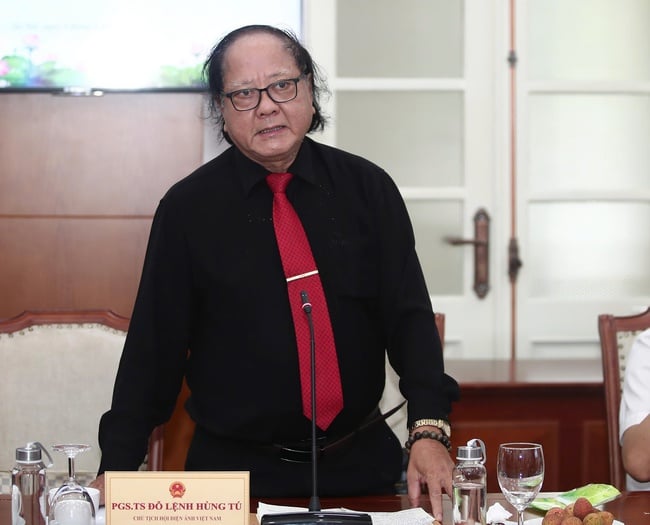
Associate Professor, Dr. Do Lenh Hung Tu, Chairman of Vietnam Cinema Association
Sharing about some digital transformation issues with the production, dissemination and storage of cinema - the spearhead of the cultural industry, Associate Professor Dr. Do Lenh Hung Tu, Chairman of the Vietnam Cinema Association emphasized that cinema is an art but at the same time it is also a technical industry, associated with the development of science and technology.
The application of technology and digital transformation takes place not only in the production process but also in the distribution process, commonly in film storage.
Pointing out the difficulties of cinema in digital transformation, Associate Professor Dr. Do Lenh Hung Tu said that in our country today, cinema mainly depends on the private sector, and state investment in cinema is still modest. Therefore, when carrying out digital transformation, cinema really needs attention and investment from the state; at the same time, there is coordination between public and private investment to have the necessary sharing.
Besides, it is necessary to pay attention to copyright and data security work, and build a national database on cinema for standardization.
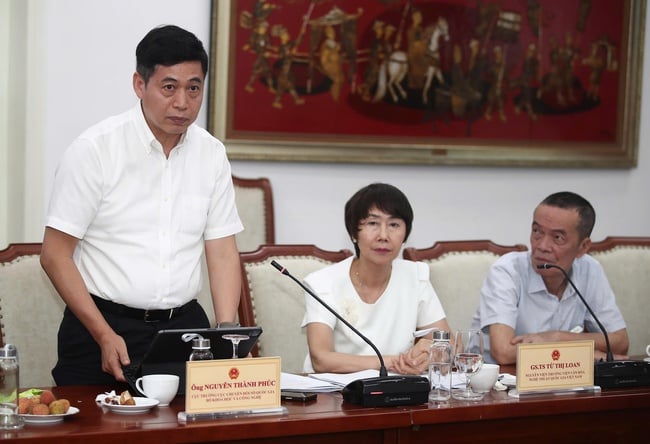
Mr. Nguyen Thanh Phuc, Director of the National Digital Transformation Agency, Ministry of Science and Technology
According to Mr. Nguyen Thanh Phuc, Director of the National Digital Transformation Department, Ministry of Science and Technology, digital transformation in the cultural sector is the use of data and digital technology to transform the operating model of agencies and organizations in the cultural sector in a modern and creative direction to achieve breakthrough efficiency and create new values.
Mr. Nguyen Thanh Phuc said that promoting digital transformation in the cultural industry needs to pay special attention to artificial intelligence (AI) technology, because AI will have a great impact, bringing about breakthroughs in production capacity, competitiveness and promoting the development of culture.
The Director of the National Digital Transformation Department, Ministry of Science and Technology also noted that digital transformation in the cultural field must come from practical requirements, not follow trends and movements.
At the workshop, representatives of leaders of a number of units under the Ministry of Culture, Sports and Tourism discussed and clarified issues related to the current status of digital transformation in the units as well as proposed and recommended a number of solutions to promote digital transformation in the cultural sector.
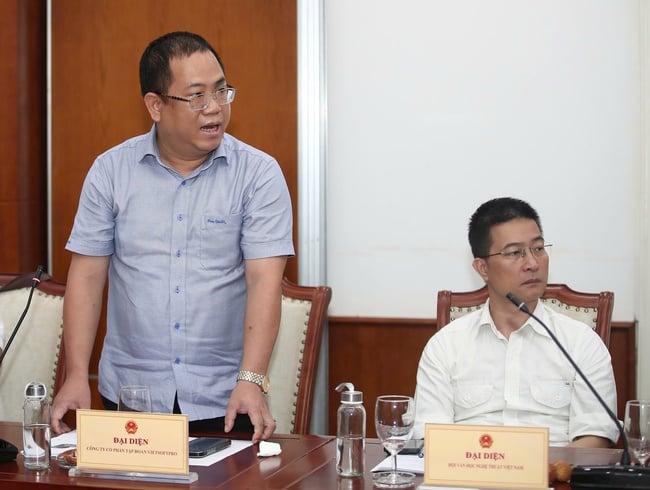
Mr. Hoang Quoc Viet, Chairman of the Board of Directors of Vietsoftpro Group
Meanwhile, representing businesses, Mr. Hoang Quoc Viet, Chairman of the Board of Directors of Vietsoftpro Group, said that the biggest bottleneck of digital transformation in the cultural sector is building a digital database for the cultural sector. Because building a digital database for the cultural sector is very complicated, digitization is not just scanning a paper document but also artifacts and works.
Mr. Hoang Quoc Viet also emphasized that cultural industry data is unique and a valuable resource. Therefore, promoting public-private cooperation, socialization, and mobilizing the participation of enterprises can help the state reduce investment costs and create good economic value.
Concluding the workshop, Deputy Minister of Culture, Sports and Tourism Phan Tam thanked the positive contributions, which were of great value in both theory and practice.
The workshop agreed that digital transformation in culture is not just a simple technological transformation but a comprehensive and profound transformation in the actions of organizations and individuals in the entire stage of the cultural value chain.
Digital transformation in the cultural field puts people and Vietnamese cultural identity at the center, ensuring humanity, preserving and promoting the values and depth of Vietnamese culture.
In the process of digital transformation, continuous innovation and creativity are the driving force; digital technology is the means and tools; digital data is the asset; digital connection and digital infrastructure are the operating environment; digital institutions are the connection mechanism.
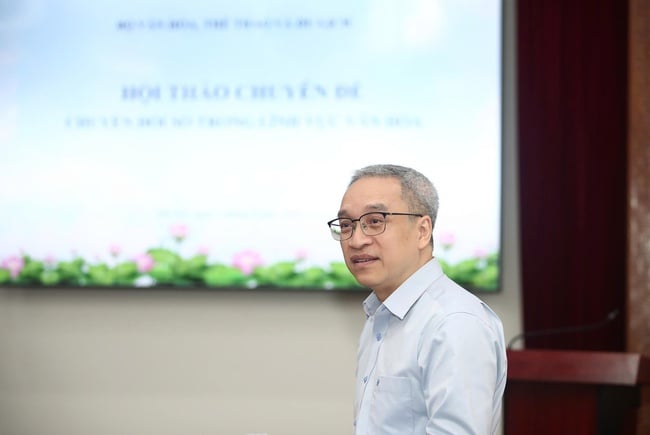
Deputy Minister of Culture, Sports and Tourism Phan Tam concluded the Workshop.
Deputy Minister Phan Tam said that the Ministry of Culture, Sports and Tourism will absorb the valid opinions at the Workshop, and continue to organize in-depth, quality workshops to develop a Digital Transformation Project in the Cultural Sector by 2030, with a vision to 2045.
"The goal is to jointly create a modern and humane Vietnamese digital culture, linking tradition with the future, preserving the nation's unique cultural values in the digital environment. At the same time, develop digital creativity, connect internationally and actively contribute to enhancing national soft power," Deputy Minister Phan Tam expressed./.
Source: https://bvhttdl.gov.vn/kien-tao-nen-van-hoa-so-viet-nam-hien-dai-nhan-van-gan-ket-truyen-thong-voi-tuong-lai-20250604155722813.htm








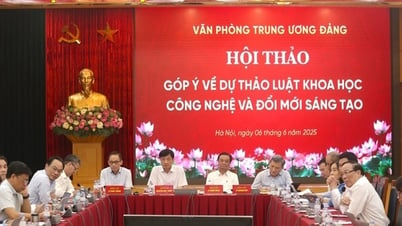

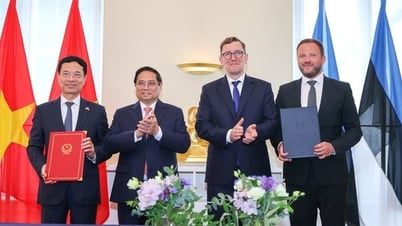
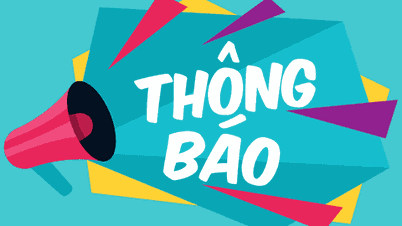

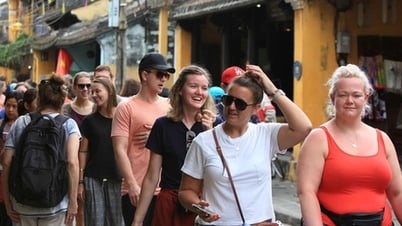

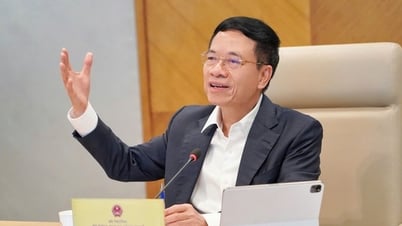




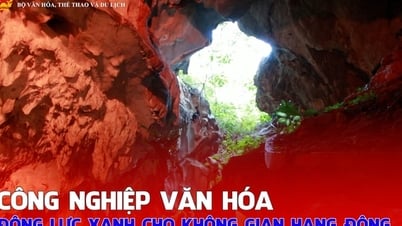
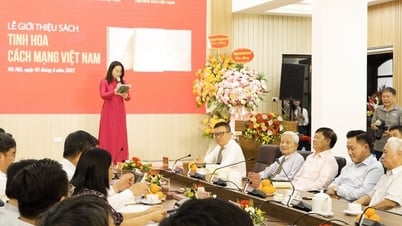




![[Photo] General Secretary To Lam receives Korean Ambassador to Vietnam](https://vphoto.vietnam.vn/thumb/1200x675/vietnam/resource/IMAGE/2025/6/6/a0765b7543784cbcbfe4755b67d43ab4)

![[Photo] President Luong Cuong works with Hung Yen and Thai Binh Provincial Party Committees on implementing Resolution of the 11th Central Conference, 13th tenure](https://vphoto.vietnam.vn/thumb/1200x675/vietnam/resource/IMAGE/2025/6/6/127b735d2761484d81dcee0d7725a25b)





























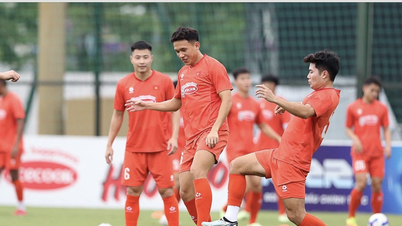
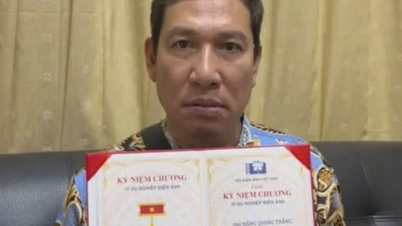

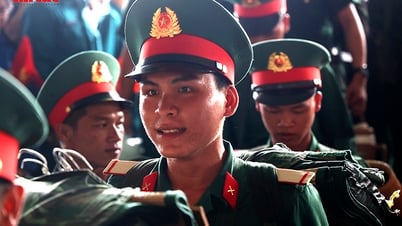
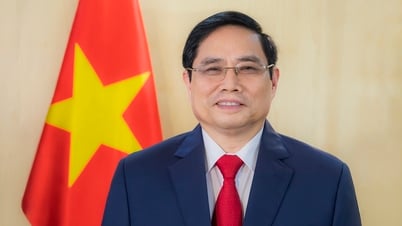

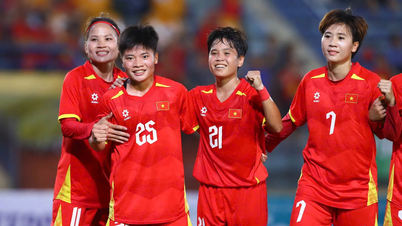


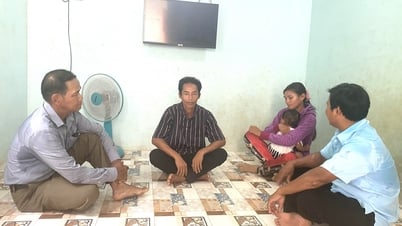

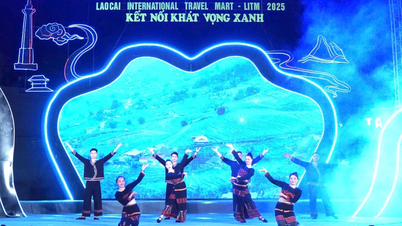

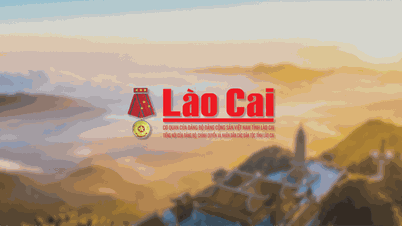
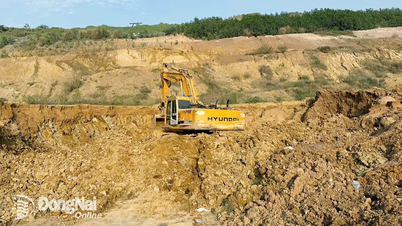

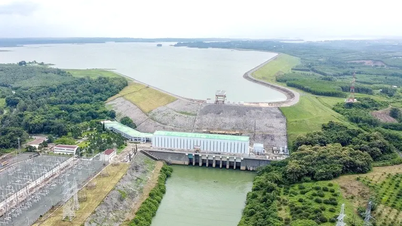
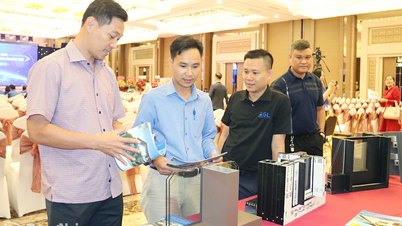




![[OCOP REVIEW] Tu Duyen Syrup - The essence of herbs from the mountains and forests of Nhu Thanh](https://vphoto.vietnam.vn/thumb/402x226/vietnam/resource/IMAGE/2025/6/5/58ca32fce4ec44039e444fbfae7e75ec)







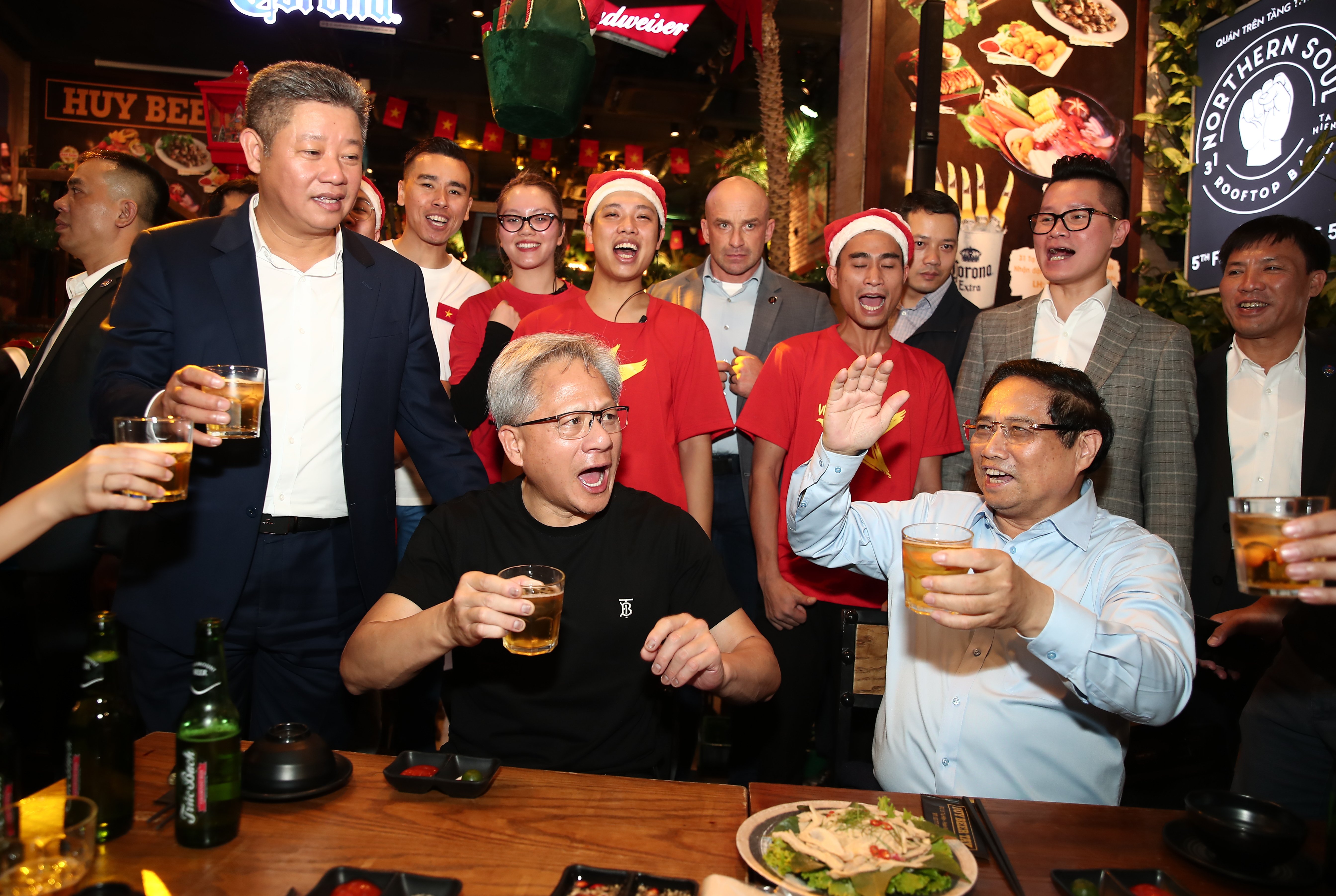

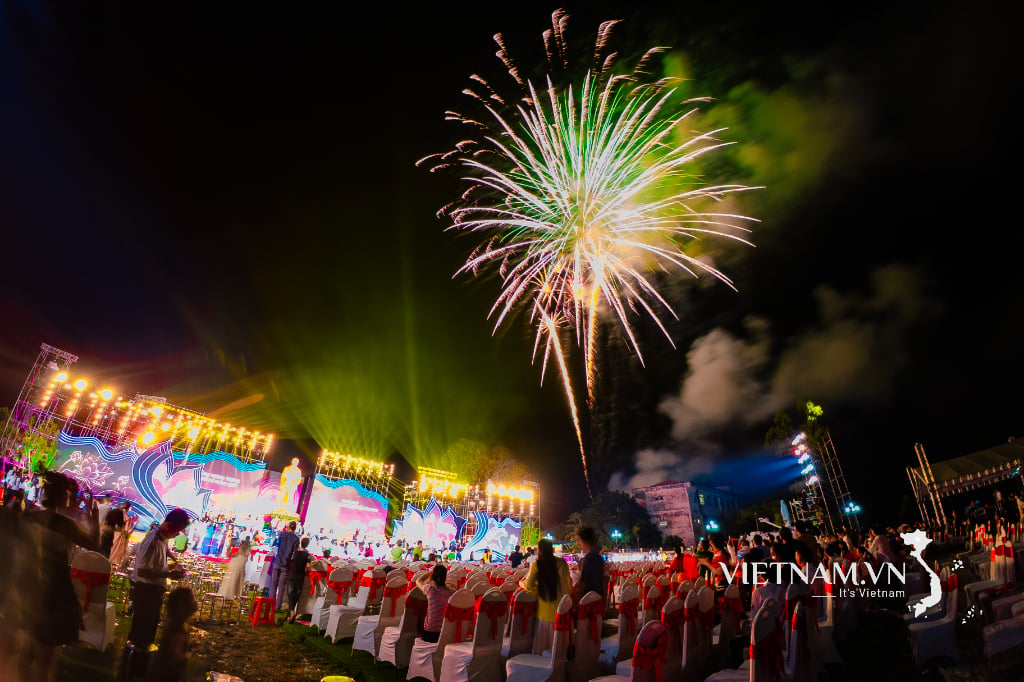
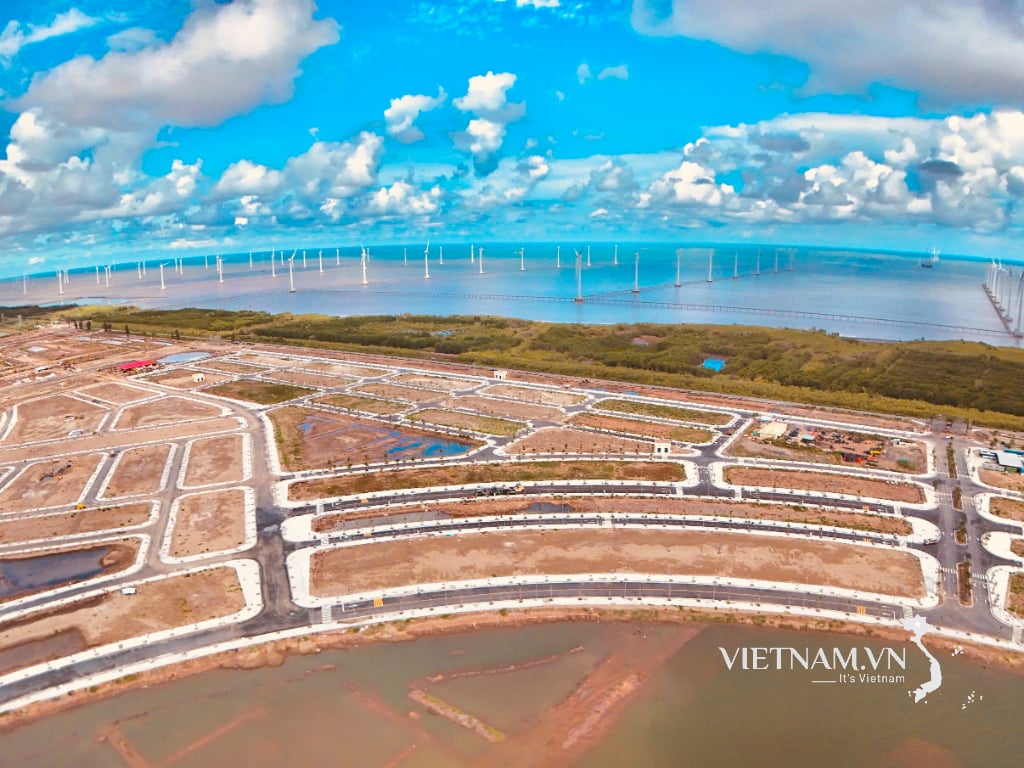
Comment (0)